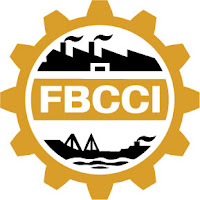The government of Bangladesh has banned exporting of fundamental food - rice, soya bean oil, sugar and palm oil for three years. It also took decision to enhance pharmaceutical export. The amount to be used for this purpose is approximately sixty thousand dollar, which is twice of the previous limit that expired in June 2012. Due to this new policy, the sampling amount of the letter of credit has increased from 5% to 10% per year.
An official from the ministry of commerce confirmed that this decision has been made after expert consultation of the corporate houses of the country and apex trade body - the Federation of Bangladesh Chambers of Commerce and Industry and all the other necessary chambers and associations.
The new policy includes some prerequisite conditions that need to be fulfilled by industries in order for them to gain access to utility services. Products such as petroleum, that fall under the energy and mineral resource category, however, are exempted from this, since they need clearance from separate division of the government.
In addition to that, the number of sectors of thrust has been raised up to 10; the new list additionally includes plastic wares, terry towel, tourism and furniture. Meanwhile the previous list has been put to review and many of the sectors are seriously being considered to be obliterated.
The newly approved policy promotes use of modern technology and hence it grants the setting up of a bank of data containing all information of article of trades of Bangladesh, levies applicable in other countries and their conditions, that would be under the ‘national portal’ . This data bank would come in handy to not only any kind of traders associated with trading in Bangladesh, but also the banks, non-bank financial institutions, state holders and National board of Revenue itself.
The new policy has also increased the retention quota. In addition to that, a completely new face for new and non-traditional products - the rate of value added tax has been made to be a minimum of 40 % of the trade in order to maintain ‘stimulus incentive’.
The policy is expected to help top pharmaceutical companies of the country to grow ever further. To some extent, this ‘carrot’ like motivation was much needed for the local Bangladeshi companies to expand operation and invest more within the country.
An official from the ministry of commerce confirmed that this decision has been made after expert consultation of the corporate houses of the country and apex trade body - the Federation of Bangladesh Chambers of Commerce and Industry and all the other necessary chambers and associations.
The new policy includes some prerequisite conditions that need to be fulfilled by industries in order for them to gain access to utility services. Products such as petroleum, that fall under the energy and mineral resource category, however, are exempted from this, since they need clearance from separate division of the government.
In addition to that, the number of sectors of thrust has been raised up to 10; the new list additionally includes plastic wares, terry towel, tourism and furniture. Meanwhile the previous list has been put to review and many of the sectors are seriously being considered to be obliterated.
The newly approved policy promotes use of modern technology and hence it grants the setting up of a bank of data containing all information of article of trades of Bangladesh, levies applicable in other countries and their conditions, that would be under the ‘national portal’ . This data bank would come in handy to not only any kind of traders associated with trading in Bangladesh, but also the banks, non-bank financial institutions, state holders and National board of Revenue itself.
The new policy has also increased the retention quota. In addition to that, a completely new face for new and non-traditional products - the rate of value added tax has been made to be a minimum of 40 % of the trade in order to maintain ‘stimulus incentive’.
The policy is expected to help top pharmaceutical companies of the country to grow ever further. To some extent, this ‘carrot’ like motivation was much needed for the local Bangladeshi companies to expand operation and invest more within the country.


Comments
Post a Comment